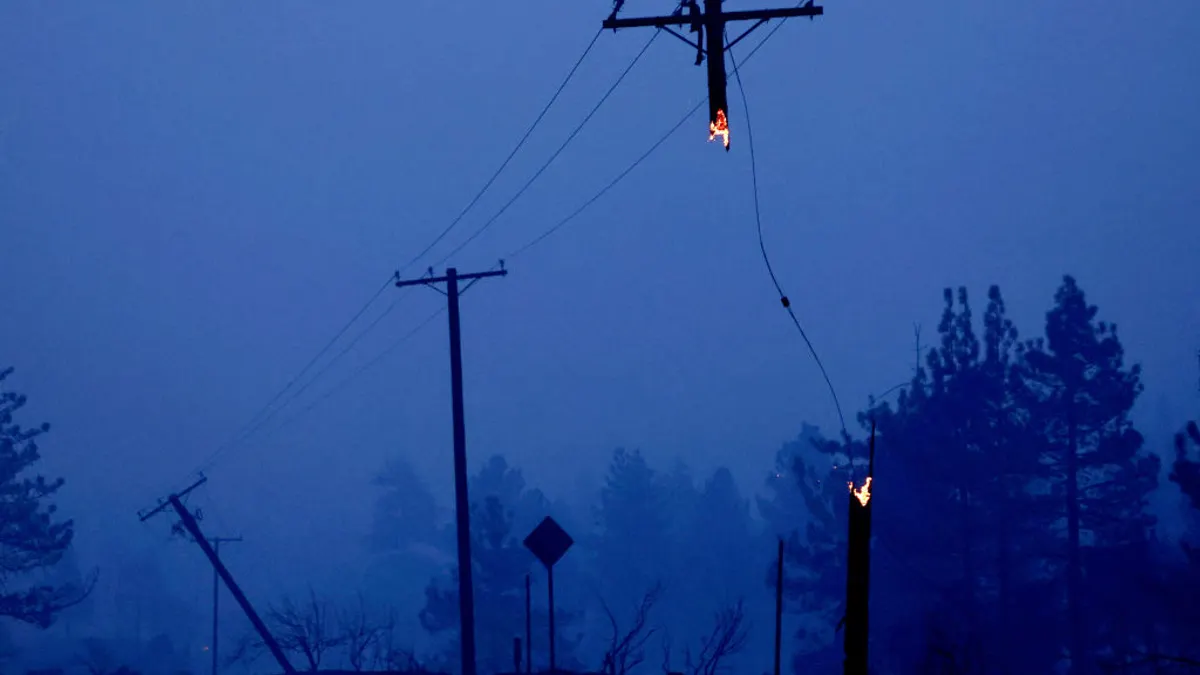Rick Perry ran the gauntlet this week. Three budget hearings on Capitol Hill, taking heated criticism in each for standing beside President Trump's budget proposal for the Department of Energy.
Wind energy blossomed under Perry's tenure as governor of Texas, and he is not shy about touting the importance of research and development. But the budget he was sent to defend has a wide range of detractors and little unqualified support.
Overall, the proposal cuts the Department of Energy budget by a modest 6%. But the small reduction belies changes to the department's priorities. Energy research is broadly cut, as funds are shifted to modernizing the nation's nuclear arsenal.
The Office of Energy Efficiency and Renewable Energy would see a 69% budget cut compared with 2016 levels; the Office of Fossil Energy budget would be reduced 44%; the Office of Nuclear Energy budget would decline by nearly 30%.
The Advanced Research Projects Agency-Energy would essentially be eliminated, with a funding cut of more than 90%.
Many of the programs on the chopping block have wide support, and in general lawmakers expressed concern about ceding leadership in research and computing to China and other nations.
It has been widely acknowledged– even by Secretary Perry himself—that the budget is a beginning point for negotiations. But it signals a lot about the White House's priorities, and, for clean energy advocates, brings little comfort.
So what did we learn from three days of hearings?
Rick Perry does not support research cuts
He doesn't. He tried to defend Trump's budget on the first day—though Think Progress' Mark Hand points out that it was tepid at best, and Perry did acknowledge that the budget reflects "difficult choices." But he also indicated the Trump administration does not expect all of the cuts to survive Congressional review.
On the second day, Perry said of the budget: "My job is just to robustly defend it."
On the third day, Sen. Al Franken, D-MN cornered Perry directly, asking him if he supported the deep cuts to research.
Perry stayed silent. Franken smiled and said, "You seem to be saying, 'I know he's guilty but I'm going give him a robust defense.'" Perry grinned but refused to say anything, and Franken just laughed and said, "You're doing a good job."
But that was followed by ...
Perry didn't write the budget.
He said this at least twice in the second and third hearings. It was already completed when he joined the Trump Administration in March, he said.
Perry is gung-ho on small nukes
He both opened his testimony with praise for small modular reactors, and closed with it, pointing to their flexibility and baseload properties. "Given the ongoing promise of SMR technology," Perry noted in prepared testimony, the Fiscal Year 2018 budget proposal includes $20 million for early-state research and development.
"I have a great belief in small modular reactors," Perry said, noting work being done in the private sector and their potential to serve far-flung communities. That allowed Sen. Lisa Murkowski, R-AK, to find common cause with Perry, cheering the work being done to serve rural communities.
"We are pioneering microgrids in Alaska that the rest of the world is paying attention to," said the ranking member.
The Secretary continues to deny that humans caused climate change
Perry paints himself as a skeptic, as someone who wants to have a serious conversation about climate change—but just doesn't think it's happened yet. He has been making reference to a scientific review process known as red team/blue team, which is supposed to support a more rigorous review.
To which Sen. Franken interjected into his explanation, "that's how science already works."
Perry played defensive: "Don't you think it's okay to have this conversation?"
There's big support for coal in Congress
The committee hearing started Thursday morning, and appeared to take place in a vacuum. News broke that the coal gasification portion of the Kemper clean coal facility in Mississippi was in doubt, and the project could potentially be run to only burn gas.
It would be a major setback for clean coal advocates, but in the hearing today there was no mention of the dilemma facing Southern Co. Wyoming Republican Sen. John Barrasso asked Perry for "assurances the budget can support commercialization of clean coal technology."
Sen. Steve Daines, R-MT, said he expects "clean coal technology will play an important role going forward...I really do think we need to lead in this important development." Daines was also particularly interested in the United States growing energy exports.
The grid review study is coming
And Perry confirmed that the highly-anticipated baseload review study has been delayed. A draft is due to the Secretary beginning of the month.
Asked about how much renewable energy the grid could handle, Perry deferred.
"I'm going be cautious about answering that definitively," he said. "We're in the process of doing a grid study now, that I think will give a better and more in-depth answer than I could .... so if I could punt this to the first week in July, we should be getting that finalized."






















